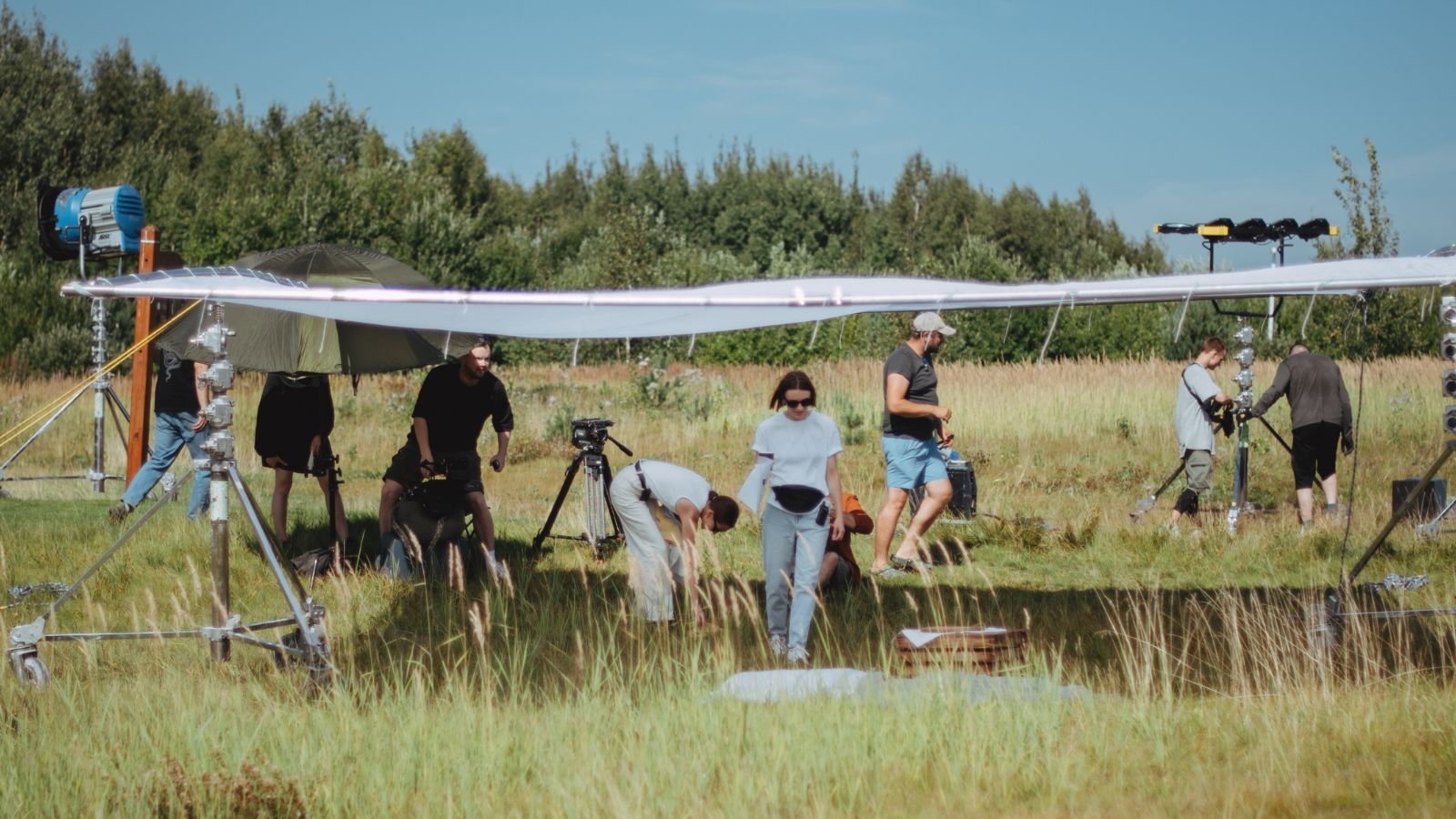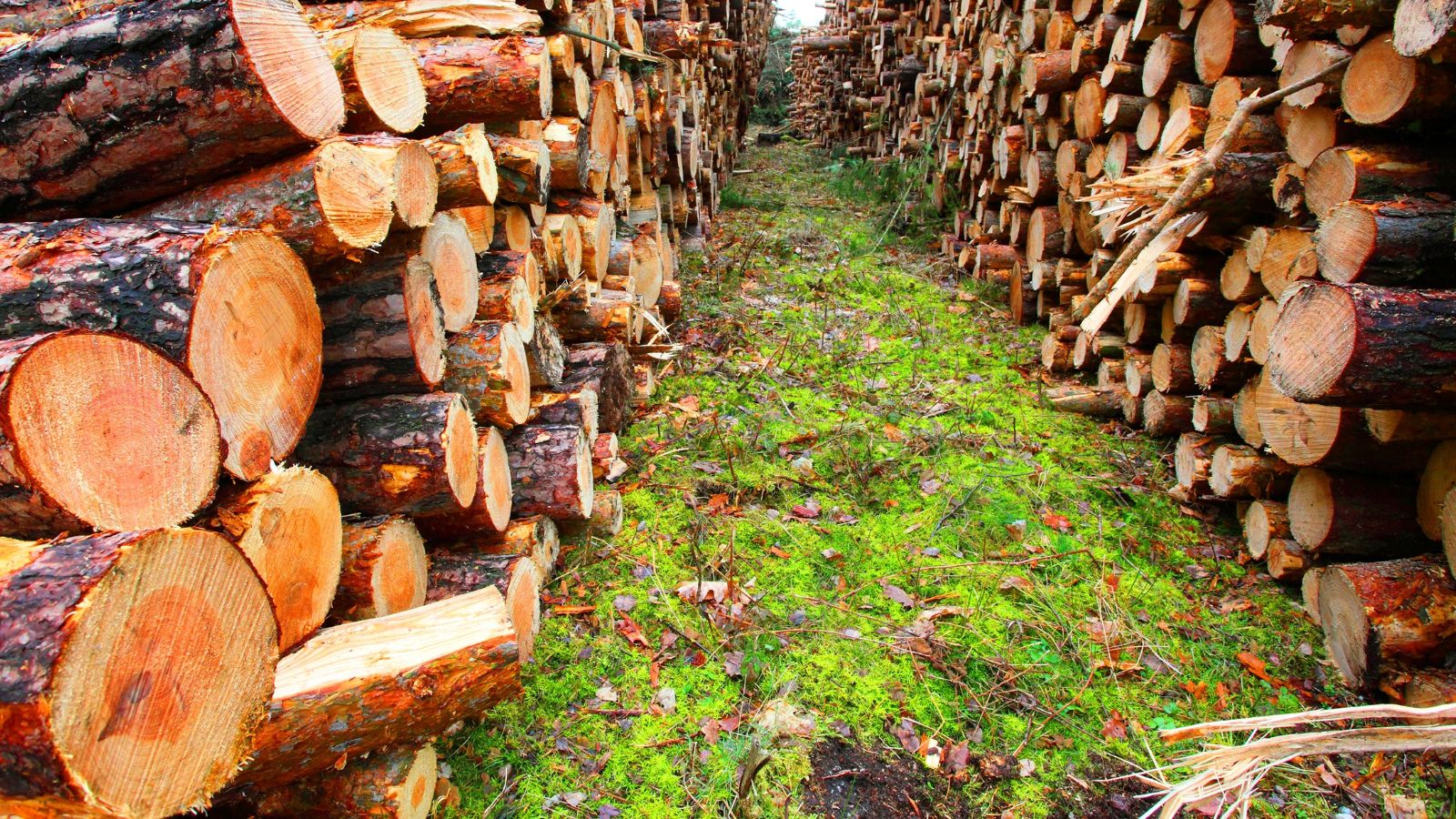While the U.S. economy has been battling inflation, labor shortages, and sectoral instability, several Canadian industries have quietly surged ahead. These sectors have managed to find a balance between innovation, demand, and sustainable growth, attracting global attention and domestic investment. From clean energy to entertainment, Canada has turned resilience into a growth model. Here are 24 Canadian industries booming while the U.S. struggles.
Clean Energy Production

The renewable energy sector has experienced massive expansion in recent years, largely due to federal incentives and provincial commitments to reduce carbon emissions. Wind and hydro power projects in Alberta, Quebec, and British Columbia are drawing billions in investment. Unlike in the U.S., where policy reversals often stall growth, Canada’s clean energy policies remain stable and forward-looking. The country has also become a global supplier of renewable technologies and expertise, exporting clean tech solutions to Europe and Asia. Consistent government funding and private partnerships have made clean energy one of Canada’s most secure and promising industries.
Electric Vehicle Manufacturing

Automakers are expanding their electric vehicle operations northward, creating an unexpected boom in Ontario’s manufacturing belt. Recent partnerships with Stellantis, Volkswagen, and Honda have placed Canada at the center of North America’s EV transition. The country’s access to lithium, nickel, and cobalt gives it an edge in battery supply chains. While U.S. EV plants face political and logistical setbacks, Canadian operations benefit from fewer regulatory disputes and stronger worker incentives. This has translated into more jobs and long-term production stability, positioning the nation as a global leader in sustainable auto manufacturing.
Battery Material Mining

Nickel, lithium, and cobalt mining have rapidly become one of Canada’s fastest-growing sectors. Demand for these critical minerals is skyrocketing due to the global EV shift. Unlike the U.S., where mining permits face lengthy delays, Canada’s mineral strategy streamlines exploration and production. Northern Ontario, Quebec, and Manitoba are now key regions for extraction, backed by environmental oversight and Indigenous partnerships. International companies are securing long-term contracts with Canadian mines, ensuring steady export income. The growth of this industry is not only fueling local economies but also strengthening Canada’s global supply chain resilience.
Tech Startups and AI Innovation

Vancouver, Toronto, and Montreal are now recognized as North American AI hubs. While U.S. tech giants are laying off thousands, Canadian startups are expanding into AI-driven healthcare, finance, and automation. Supported by universities like McGill and the University of Toronto, these companies attract global talent and venture capital. Government research grants and immigration policies that welcome skilled workers have accelerated innovation. The stable business environment allows firms to focus on growth instead of survival. As a result, Canada’s tech landscape has quietly built one of the most sustainable ecosystems on the continent.
Film and Television Production

Cities like Vancouver and Toronto are now busier than Hollywood when it comes to film production days. Competitive tax credits, a skilled workforce, and diverse filming locations have made Canada a top choice for global studios. While the U.S. faces union strikes and high production costs, Canadian soundstages are fully booked. Streaming giants such as Netflix and Amazon have invested in local infrastructure and training programs. The domestic entertainment industry has also strengthened, with Canadian shows achieving international acclaim. This consistent demand has turned production into a reliable and rapidly growing economic engine.
Tourism and Adventure Travel

Despite global travel uncertainty, tourism in regions like Banff, Yukon, and Newfoundland is experiencing record bookings. Domestic travelers are exploring more within Canada, and international visitors from Europe and Asia have surged. Strong marketing campaigns and sustainable tourism practices have built confidence among travelers. Unlike the U.S., where overcrowding and infrastructure issues deter visitors, Canada’s destinations remain organized and nature-focused. Indigenous-led tourism and eco-lodges have also added cultural depth to travel experiences. The steady rise in both luxury and adventure segments continues to drive job creation and small business success across the country.
Agriculture and Agri-Tech

Canadian farms are combining traditional expertise with cutting-edge technology. From drone-assisted seeding to smart irrigation, innovation is boosting yields while reducing costs. The U.S. agricultural market struggles with water shortages and labor disputes, but Canadian farmers benefit from government research support and export deals with Asia. Saskatchewan and Manitoba have become major players in pulse crops and sustainable wheat production. The Agri-tech subsector, focusing on automation and soil analytics, is expanding rapidly. With rising food security concerns worldwide, Canada’s approach is creating a resilient and high-demand agricultural model.
Maple Syrup and Specialty Foods
The global demand

for authentic maple syrup and organic Canadian food products has surged. Quebec producers are expanding exports to Asia and Europe as international consumers crave natural sweeteners. In contrast, the U.S. maple industry faces inconsistent yields due to climate shifts. Canada’s well-regulated quality system and branding advantage ensure steady pricing and loyal buyers. Small-scale artisanal brands are also thriving, supported by e-commerce and sustainable packaging trends. This combination of tradition and modern marketing has turned maple syrup and specialty food exports into a multimillion-dollar growth industry.
Fisheries and Aquaculture

Atlantic Canada’s fisheries have adapted to changing ecosystems with modern aquaculture and sustainable practices. While the U.S. faces overfishing and declining coastal yields, Canadian fish farms and ocean management programs maintain long-term viability. Salmon, lobster, and shellfish exports are rising, particularly to Japan and China. Strict environmental regulations ensure product quality and sustainability, attracting eco-conscious buyers. Indigenous-owned operations are gaining prominence, bringing community-driven models to the global seafood trade. The focus on responsible harvesting has positioned Canada as a leader in sustainable marine production and export growth.
Healthcare Technology and Biotech

Canada’s biotech and medtech sectors have flourished thanks to pandemic-era innovation and ongoing government support. Startups are pioneering cancer treatments, vaccine delivery systems, and AI-powered diagnostics. The U.S. healthcare tech scene remains volatile, but Canada’s public-private balance offers stability and collaboration. Montreal and Toronto are seeing a surge in research clusters connecting hospitals and startups. International investors are also drawn to Canada’s ethical research standards and reliable approval processes. The result is an expanding sector that combines healthcare innovation with long-term economic benefit.
Construction and Infrastructure Development

Massive infrastructure projects across provinces have fueled consistent growth. Investments in highways, rail, and housing developments are stimulating the construction industry. While the U.S. faces delays due to funding disputes, Canada’s projects benefit from public-private partnerships and efficient approval systems. The federal Housing Accelerator Fund and green infrastructure initiatives are generating thousands of jobs. Demand for skilled trades continues to rise, and modular construction methods are improving timelines and costs. With urban expansion and immigration increasing housing needs, construction remains one of the country’s most stable sectors.
Real Estate and Property Management

Property values in major Canadian cities continue to hold steady despite global slowdowns. Demand for rentals and mixed-use developments remains high, fueled by immigration and population growth. While the U.S. housing market struggles with mortgage defaults and fluctuating interest rates, Canada’s regulatory oversight helps maintain balance. Property management companies are also seeing growth as investors seek reliable returns. In addition, short-term rental management and senior living facilities are expanding nationwide. The continued urban demand ensures real estate remains a vital pillar of Canada’s post-pandemic economic recovery.
Forestry and Sustainable Wood Products

The forestry sector has rebounded with a focus on sustainability and green exports. Demand for Canadian lumber and engineered wood products has surged in Asia and Europe. Wildfire management improvements and reforestation programs have stabilized production. The U.S. housing slump has reduced its domestic lumber use, but Canadian exports continue to thrive. Provinces like British Columbia and Ontario have modernized mills to reduce emissions and waste. With global construction favoring eco-friendly materials, sustainable forestry has become one of Canada’s most reliable and future-proof industries.
Pharmaceuticals and Generic Drugs

Canadian pharmaceutical companies are expanding rapidly, producing high-quality generics and biosimilars for global markets. The country’s regulatory reputation and cost efficiency make it attractive for production partnerships. While U.S. firms face lawsuits and high manufacturing costs, Canada benefits from transparent policies and competitive pricing. Companies like Apotex and Bausch Health continue to grow internationally. Export demand for affordable medications has created new revenue streams. Continued government investment in research infrastructure further solidifies the pharmaceutical industry’s strong position in both domestic and global markets.
Cybersecurity and Data Protection

As digital threats multiply, cybersecurity firms across Canada are thriving. Toronto and Calgary host growing tech clusters focused on AI-based defense systems, identity management, and cloud security. Businesses and government agencies increasingly prefer Canadian providers due to strict data privacy laws. Meanwhile, many U.S. firms face reputational challenges over data breaches. Canada’s balanced regulatory framework ensures innovation without compromising protection. The industry’s growth has attracted foreign clients seeking secure North American partnerships. High demand and global credibility make cybersecurity one of Canada’s most profitable emerging sectors.
Financial Technology (Fintech)

Fintech startups in cities like Toronto, Vancouver, and Montreal are reshaping how Canadians bank and invest. Digital payment systems, automated investing, and crypto regulation clarity have fueled expansion. The U.S. sector is bogged down by fragmented regulations, but Canada’s framework encourages experimentation. Major players like Wealthsimple and Koho have expanded internationally while maintaining consumer trust. With a population eager for low-fee financial solutions, fintech continues to attract venture capital and skilled workers. The sector’s blend of innovation and regulation positions it as one of Canada’s most future-ready industries.
Education and Online Learning

The education sector, both domestic and international, is thriving as Canada becomes a top destination for global students. Universities in Toronto, Vancouver, and Montreal report record enrollments. The online learning market has also expanded through partnerships with tech firms. In contrast, U.S. universities face declining enrollment and rising tuition backlash. Affordable education, inclusive immigration policies, and high post-graduation employment rates give Canada a distinct advantage. Edtech startups focusing on AI-driven learning tools and digital classrooms are scaling rapidly, making education a growing contributor to the national economy.
Logistics and Supply Chain Management

Canada’s logistics industry has expanded due to global supply chain diversification. Major ports in Vancouver, Montreal, and Halifax are upgrading infrastructure to handle record container volumes. The U.S. continues to struggle with congestion and labor strikes, while Canada’s systems remain efficient and digitally integrated. Investments in smart logistics technologies, autonomous trucking, and cold-chain storage are creating new efficiencies. Partnerships with Asian and European trade routes have positioned Canada as a stable and preferred shipping hub. The industry’s reliability and modernization have made it indispensable for international trade.
Gaming and Interactive Media

The gaming sector has seen explosive growth, driven by studios in Montreal, Vancouver, and Toronto. With tax incentives and a deep talent pool, developers are producing globally acclaimed titles. U.S. studios face high turnover and creative burnout, while Canada’s work-life balance attracts top international talent. Esports and VR gaming startups are also thriving, supported by strong infrastructure and sponsorship deals. Government programs encourage diversity in gaming, broadening appeal and innovation. The result is a thriving creative economy generating billions in exports and digital revenue.
Insurance and Risk Management

Canadian insurance firms have maintained steady profits despite global volatility. The industry’s strength lies in its conservative underwriting and diversified portfolios. While U.S. insurers struggle with climate-related losses and legal claims, Canadian companies use advanced analytics to manage risk. The rise of climate insurance and cyber risk coverage has created new growth areas. Consumers appreciate the transparency and stability of Canadian providers. With strong capital reserves and innovation in digital claims processing, the industry remains resilient and highly profitable across markets.
Food Processing and Export Manufacturing

Food processing facilities are expanding rapidly, supported by strong agricultural supply chains and export demand. Processed goods like canola oil, seafood, and dairy products have gained international traction. U.S. plants face labor shortages and inflation-driven cost spikes, but Canadian operations maintain efficiency through automation. Trade agreements with Europe and Asia provide broad export access. The emphasis on quality and traceability has made Canadian products highly competitive abroad. As global demand for reliable food suppliers increases, this industry continues to build momentum.
Aerospace and Aviation Technology

Montreal and Toronto remain global aerospace hubs, with companies like Bombardier and Pratt & Whitney Canada leading innovation. The industry has rebounded faster than its U.S. counterparts due to stable defense contracts and civil aviation demand. Investments in sustainable aviation fuels and lightweight materials are creating long-term opportunities. Skilled engineers and government-backed R&D make the sector highly competitive. Export orders for business jets and aircraft components are increasing, securing Canada’s place as a global leader in aerospace technology and engineering expertise.
Renewable Construction Materials

Eco-friendly construction materials like cross-laminated timber and recycled steel are seeing strong adoption. Canadian firms are pioneering methods to reduce emissions during building processes. The U.S. market faces inconsistent green standards, but Canada’s climate policies ensure a steady shift toward sustainable architecture. Startups in Alberta and Quebec are developing scalable production models for carbon-neutral materials. Growing demand from Europe and Asia for environmentally conscious imports further boosts this niche. As green infrastructure expands, renewable materials are set to dominate future construction markets.
Brewing and Craft Beverage Industry

Independent breweries, distilleries, and cider houses are flourishing nationwide. Consumers are drawn to locally sourced ingredients and experimental flavors. While many U.S. craft breweries have closed due to high costs, Canada’s smaller but steady market supports long-term survival. Provinces like British Columbia and Ontario offer grants and favorable regulations for small producers. Exports to Europe and Asia are increasing as global demand for premium craft beverages grows. The balance between tradition and innovation keeps this industry profitable and deeply connected to local economies.
21 Products Canadians Should Stockpile Before Tariffs Hit

If trade tensions escalate between Canada and the U.S., everyday essentials can suddenly disappear or skyrocket in price. Products like pantry basics and tech must-haves that depend on are deeply tied to cross-border supply chains and are likely to face various kinds of disruptions
21 Products Canadians Should Stockpile Before Tariffs Hit
